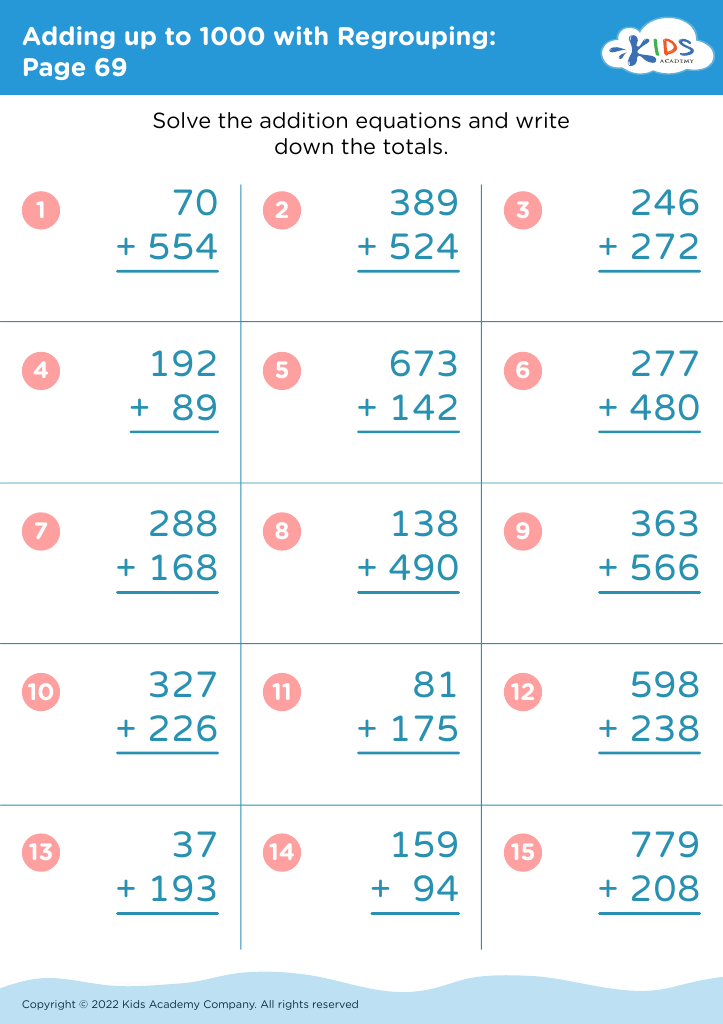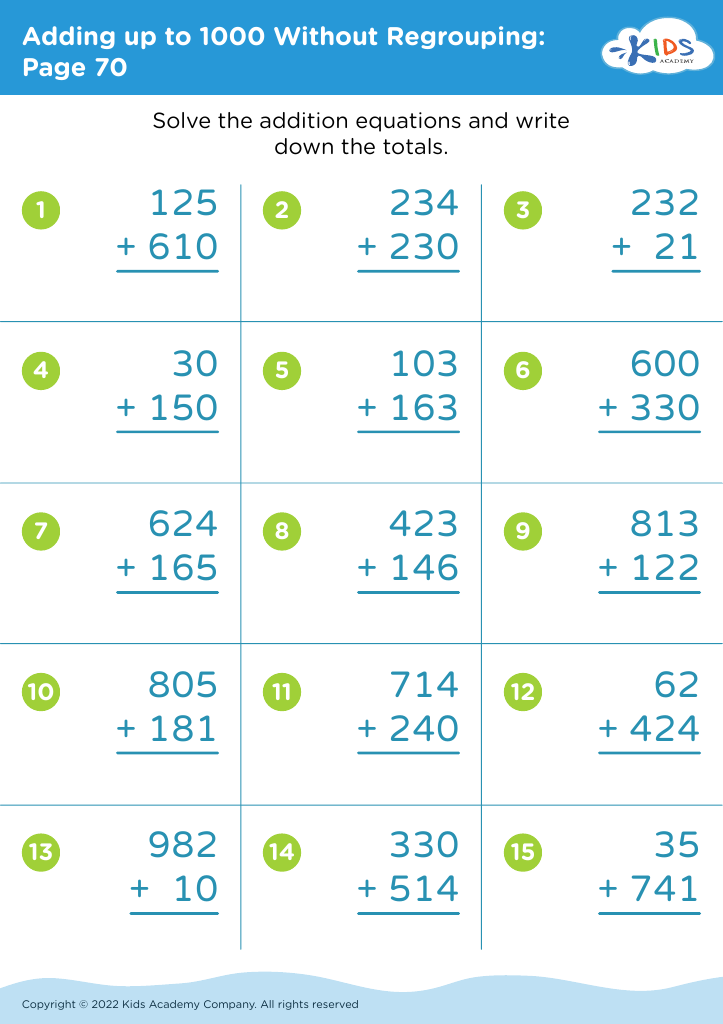Critical Thinking Adding up to 1000 Worksheets for Ages 3-9
5 filtered results
-
From - To
Boost your child's mathematical prowess with our "Critical Thinking Adding up to 1000 Worksheets for Ages 3-9." These expertly designed worksheets foster critical thinking and problem-solving skills while helping young learners master addition up to 1000. Perfect for early grade students, the engaging exercises cover a variety of fun, age-appropriate challenges that enhance number sense and analytical reasoning. Ideal for both classroom and at-home learning, these resources support your child's journey to becoming a confident and competent mathematician. Equip your little one with the tools and strategies to excel in math and beyond.
Parents and teachers should care about critical thinking exercises, such as adding up to 1000, for children ages 3-9 because it profoundly influences their cognitive development and foundational math skills. Critical thinking entails analyzing, reasoning, and problem-solving, competencies essential for academic success and real-life situations.
When children engage in adding large numbers, they learn more than basic arithmetic; they enhance their mental calculation abilities, pattern recognition, and overall numerical fluency. These exercises stimulate the brain, promoting neural connections critical for advanced mathematical concepts. A structured activity that requires counting, combining, and reflecting on numbers bolsters a deeper understanding and retention of math principles.
Moreover, developing these skills at an early age fosters a growth mindset. Children begin to view challenging tasks as opportunities for learning rather than as obstacles. This insight builds confidence and persistence in facing academic and everyday problems.
In an increasingly complex world, the ability to think critically and solve problems independently is paramount. Encouraging early primary school children to work with higher numbers is a small but significant strategy in preparing them for future academic endeavors, nurturing a lifelong capacity to think critically and adaptively.






















